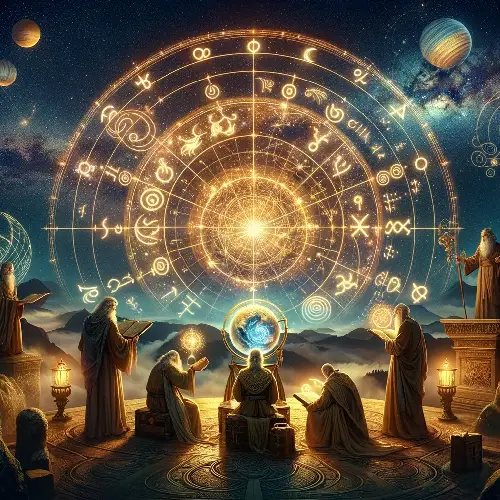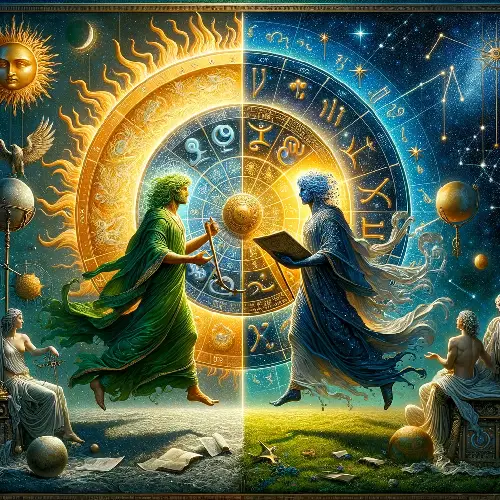The concepts of karma and reincarnation are not only pivotal in the philosophical underpinning of Vedic astrology but also form the essence of the broader Indian spiritual philosophy. Let’s explore these profound concepts and their connection to Vedic astrology in a manner that’s both enlightening and approachable.
Karma and Reincarnation: The Philosophical Basis of Vedic Astrology
In the mystic realms of Vedic astrology, the concepts of karma and reincarnation serve as the very foundation, offering a profound and nuanced understanding of life and the universe. These ancient philosophies present a perspective where life is seen as a continuous journey of the soul, transcending a single lifetime. Below, we delve into the heart of these philosophies and uncover how they interlink with the principles of Vedic astrology.
1. The Law of Karma
Karma, a Sanskrit term meaning ‘action’, refers to the universal law of cause and effect that governs all existence. According to this principle:
Action and Reaction: Every action, thought, and intention has consequences, which may manifest either in the current life or in future lives.
Personal Responsibility: Individuals are responsible for their actions, and through their choices, they shape their destiny.
Moral Compass: Karma serves as a moral compass, guiding individuals towards righteous actions and spiritual growth.
In the context of Vedic astrology, the planets and their positions in one’s birth chart can indicate the karmic patterns and lessons a person may experience in their lifetime.
2. The Cycle of Reincarnation
Reincarnation, or the cycle of birth and rebirth, is a concept where the soul undergoes numerous incarnations, evolving and learning through each life experience. This cycle is influenced by:
Soul Evolution: The soul progresses through various lifetimes, accumulating knowledge and evolving towards a higher consciousness.
Samsara: The endless cycle of birth, death, and rebirth, where the soul seeks to attain liberation (moksha) from the material world.
Past Life Impressions: Impressions and experiences from past lives, known as Samskaras, influence the character and circumstances of the current life.
In Vedic astrology, the concept of reincarnation is reflected in the birth chart, which is believed to be a blueprint of one’s karmic journey, indicating past life influences and potential future trajectories.
3. Interconnection with Vedic Astrology
Vedic astrology, deeply rooted in these philosophies, provides a lens through which one can explore the intricate web of karma and reincarnation.
Birth Chart as a Karmic Map: The natal chart, or Kundali, is seen as a map of one’s karmic journey, indicating the influences of past actions on the current life.
Planetary Positions and Karmic Lessons: The positions of planets and the aspects they form can reveal the karmic lessons and challenges one might encounter.
Dasha System: The Dasha system in Vedic astrology offers insights into the different phases of life, indicating periods of growth, challenges, and transformations, influenced by the cosmic play of karma and reincarnation.
Conclusion
The philosophies of karma and reincarnation form the backbone of Vedic astrology, offering a rich and profound understanding of life’s complexities. Through the lens of Vedic astrology, one can explore the intricacies of their karmic journey, gaining insights into the cosmic forces that shape their destiny. As individuals navigate through the labyrinth of life, guided by the celestial wisdom of Vedic astrology, they can foster a deeper understanding of their purpose and potential, harmonizing with the grand cosmic dance of karma and reincarnation, in a journey towards self-realization and enlightenment.


